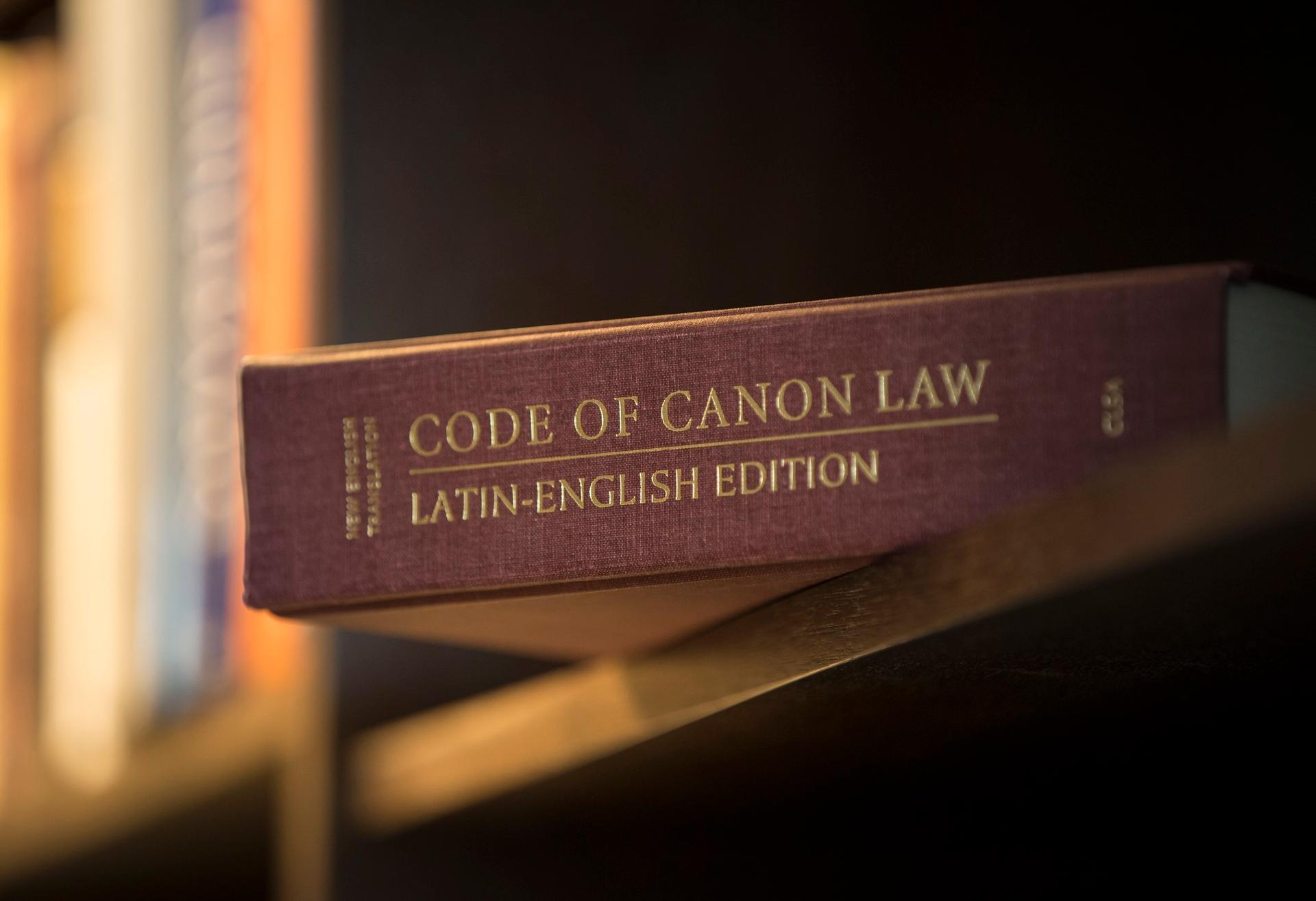ROME – As COVID-19 pandemic travel restrictions continue to loosen, a working group made up of church and civil legal professionals is preparing to assist dioceses and individuals with church law.
Church law can cover criminal, administrative, marriage, and even property issues. However, it requires adequate preparation, and many dioceses don’t have enough canon lawyers to address the complex legal situations that can arise.
“Jurists for Pastoral Care” was created by Italian Father Giorgio Giovanelli in 2020, but due to the pandemic, the group’s efforts were initially thwarted.
“This is a working group made up of university professors, lawyers from the Roman curia, ecclesiastical judges, civil and criminal lawyers,” he told Crux. “The aim is to offer an advisory service to bishops, priests and lay people in the various dioceses or, if necessary, to set up activities in the territory to help find a solution to all complex legal situations of canon and civil law.”
Put in layman’s terms, they can become a traveling canonical consultancy if needed, and are able to help out in Italian, English, German, French, Spanish, and Latin, which is useful for the Vatican’s courts.
RELATED: Notre Dame conference ponders ‘truth and reconciliation’ process for abuse crisis
Above all, Giovanelli said, “the project wants to be a response to Pope Francis’s invitation to be an ‘outgoing church’ also in the legal field.”
Giovanelli is a parish priest in Italy’s Marche region and professor of canon law at Rome’s Pontifical Lateran University. He also serves as diocesan judicial vicar (the chief judge of a diocese), general chancellor, and is the diocesan referent for the office for the protection of minors that every diocese was supposed to set up by June 2020. He has also been tapped by the Vatican’s Secretariat of State to take part in processes carried out against bishops, that are reserved to the Holy See.
“Often, I am faced with situations that require specialization and skills necessary to offer concrete, valid, and above all, true answers to the people involved,” he said.
Justice in accordance with the church’s code of law “is technical work,” Giovanelli said. However, it has a direct impact on the lives of Catholics, many of whom have “stories of suffering that have gone on for years,” including clerical abuse victims, but also those who have been victims of abuses of power or conscience.
The priest also shared hopes for dioceses to invest in training canon lawyers in an attempt to bridge the gap between legal precision and pastoral care.
He came up with the idea following years of experience, both in direct pastoral ministry and as a university professor. The premise is that a member of the team will go wherever their “problem solving” is needed.
“Our experience is that in most dioceses there is no capability to deal with complex situations in canon law,” he said. “And there are risks associated with this, including having unjust trials. And this is not good for the church, an institution that must deal with the person” who is suffering.
“Too many things partaking canon law are done superficially due to the lack of experts,” he said. “This presents a risk to the right to a fair trial and the right to having one’s privacy preserved.”
He has dealt with cases of priests who were removed from the clerical state without sufficient evidence, and also with those who were removed from the priesthood for sexual crimes and then let loose in society without alerting civil authorities.
“Zero tolerance, of course, but an investigation and process must be carried out, because everyone’s rights must be guaranteed,” Giovanelli said. “First and foremost, those of the victim who has to be at the center. But there is also the paradigm of restorative justice, and a canonical penalty that helps the offender, and is not an instrument to kill him definitively.”
To be clear, by “helps the offender,” the canon law expert does not mean allowing the man removed from the priesthood to avoid earthly justice – just the opposite.
“It may seem evil for me to say this, but as the pope urges, collaboration with the civil authorities is necessary,” he said. “Whenever there is a canonical process, and a priest is condemned, there needs to be collaboration with civil justice as well: Once a priest is found guilty and removed from the priesthood, the church has no more coercive power over that person.”
The Catholic Church does not, for instance, contemplate a church-owned jail. Hence, if no cooperation takes place, “there is a risk that the offenders become potential ‘bombs’ in society, free to commit the same crime again. A person found guilty needs to be controlled by civil authorities, with the coercive powers that civil society has.”
Follow Inés San Martín on Twitter: @inesanma














